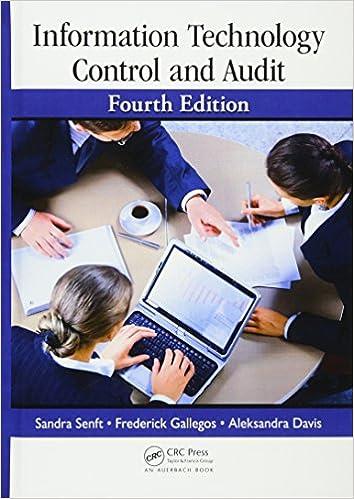Question
Question 21 Regarding sectoral issues and NAFTA: a. No other trade sector is as complex or highly regulated as agricultural trade. b. NAFTA contains specific
Question 21
Regarding sectoral issues and NAFTA:
| a. | No other trade sector is as complex or highly regulated as agricultural trade. | |
| b. | NAFTA contains specific rules of origin for determining when a textile product has originated in North America. | |
| c. | Mexico has long had an open automobile market, which has encouraged trade. | |
| d. | NAFTA has no rules regarding government procurement. |
Question 22
Country-of-origin information impacts all of the following except:
| a. | The tariff classification of the article. | |
| b. | The rate of duty on an import. | |
| c. | The applicability of a quota. | |
| d. | The applicability of a countervailing duty. |
Question 23
Goods re-exported without having been significantly altered after being imported are subject to a refund of duties paid known as a:
| a. | Same condition drawback. | |
| b. | Manufacturing drawback. | |
| c. | Substitution drawback. | |
| d. | Non-transformation drawback. |
Question 24
A law or regulation affecting a product's characteristics that must be met before a product can enter a country is a:
| a. | Product standard. | |
| b. | Government procurement law. | |
| c. | Technical regulation. | |
| d. | Product limitation. |
Question 25
In response to the recent financial crisis, the Eurozone states launched a permanent funding program for the rescue of states undergoing financial crisis called the:
| a. | Eurozone Crisis Act. | |
| b. | European Fiscal Compact. | |
| c. | European Stability Mechanism. | |
| d. | None of the above |
Question 26
Goods re-exported without having been significantly altered after being imported are subject to a refund of duties paid known as a:
| a. | Same condition drawback. | |
| b. | Manufacturing drawback. | |
| c. | Substitution drawback. | |
| d. | Non-transformation drawback. |
Question 27
In EU Measures Concerning Meat and Meat Products, the WTO Dispute Resolution Panel decided:
| a. | The EC's regulation permitting zero residue violates the SPS agreement because internationally accepted standards permit residue. | |
| b. | Where no internationally accepted standards exist, the EC ban on that hormone was not allowed because it was not based on a risk assessment using scientifically accepted principals. | |
| c. | The decision of the Dispute Resolution Body was overturned by the WTO Appellate Body in January of 1998. | |
| d. | Both A and B are true. |
Question 28
The majority of the gross domestic product in the U.S. is produced by:
| a. | Trade in services. | |
| b. | Technology industries. | |
| c. | Service industries. | |
| d. | Manufacturing industries. |
Question 29
Which of the following combinations of drawbacks are not applicable?
| a. | Same condition and manufacturing. | |
| b. | Manufacturing and substitution. | |
| c. | Substitution and same condition. | |
| d. | Any of the above combinations could occur. |
Question 30
The goals of the Maastricht Treaty included
| a. | Promoting social progress and cohesion. | |
| b. | Assertion of the EU's identity on the international scene. | |
| c. | Protection of the rights and interests of the Nationals of member states by introduction of a citizenship of the Union. | |
| d. | A and B only. | |
| e. | A, B, and C. |
b
Step by Step Solution
There are 3 Steps involved in it
Step: 1

Get Instant Access to Expert-Tailored Solutions
See step-by-step solutions with expert insights and AI powered tools for academic success
Step: 2

Step: 3

Ace Your Homework with AI
Get the answers you need in no time with our AI-driven, step-by-step assistance
Get Started


